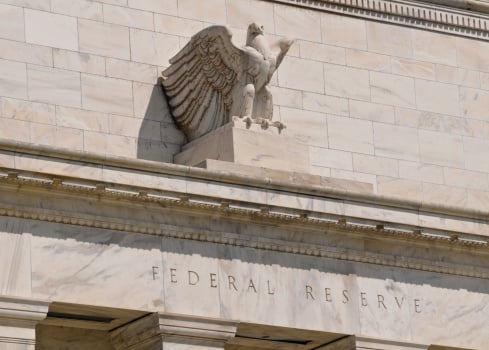Economy
Fed Funds Futures Signal December 2015 to January 2016 Fed Rate Hike Bias
Published:
With every stock market pullback, or a mini-crash, investors just about always have to consider what it means for interest rates. In the latest case, with the Dow Jones Industrial Average and S&P 500 Index having been down over 10%, investors are wondering about what this does to the timing of the Federal Reserve’s eventual interest rate hike cycle. Source: Thinkstock
Source: Thinkstock
Up until the end of last week, and even part of Monday, the expectation has been that the rate hike was going to officially come in December. Some economists have scooted back their time frames from September, but 24/7 Wall St. tracks the fed funds futures on the CME for when to expect the rate hike cycle to begin.
One admission has to be made here: economist expectations could still outfox the fed funds futures. Still, those futures are real world money bets that are being made. It seems reasonable to expect that an average of everyone’s financial bet direction might outweigh the opinions of guys sitting in offices making their guesses. Again, there is no assurance that the fed funds futures will be more accurate.
The call last week was that December 2015 would be the first rate hike from Janet Yellen and her voting members on the Federal Open Market Committee. As of mid-afternoon on Tuesday, December is still very possible, but January 2016 is the first month when those fed funds futures are formally above the 100% expected line.
The price of 99.76 for December still allows for some expectations that the Fed may move in December. But the 99.725 price for January 2016 is the first formal price of a 100% chance.
The thing to consider here is that fed funds futures have often signaled rate hikes out months or a year or more, and the timing of the interest rate hikes just has never materialized. The excuse is always different, but that is what makes a market.
The notion that the timing of a rate hike has been pushed out may just be due to volatility and panic selling in the stock markets in the United States and abroad. That should not be too shocking that it would change the timing being priced in by the markets. In some ways, China’s devaluation and interest rate cuts have acted like a U.S. rate hike already.
ALSO READ: Where Will Warren Buffett Put Money as Markets Collapse?
Want retirement to come a few years earlier than you’d planned? Or are you ready to retire now, but want an extra set of eyes on your finances?
Now you can speak with up to 3 financial experts in your area for FREE. By simply clicking here you can begin to match with financial professionals who can help you build your plan to retire early. And the best part? The first conversation with them is free.
Click here to match with up to 3 financial pros who would be excited to help you make financial decisions.
Thank you for reading! Have some feedback for us?
Contact the 24/7 Wall St. editorial team.